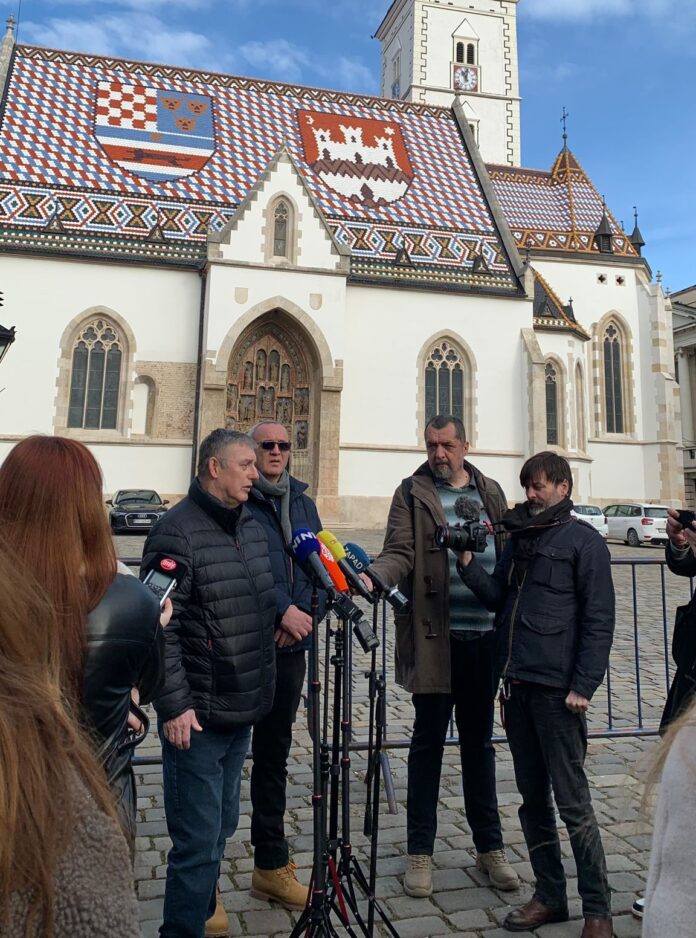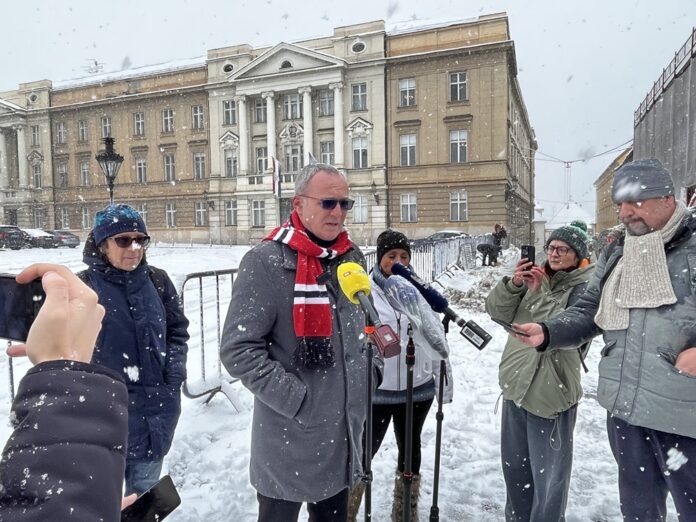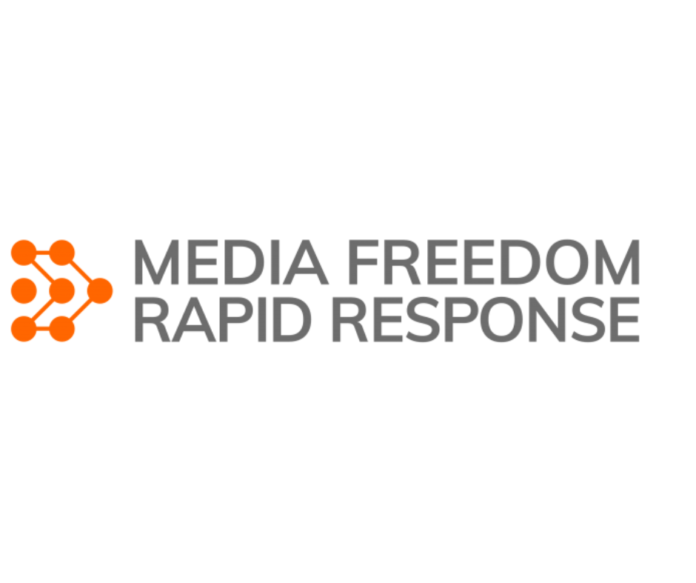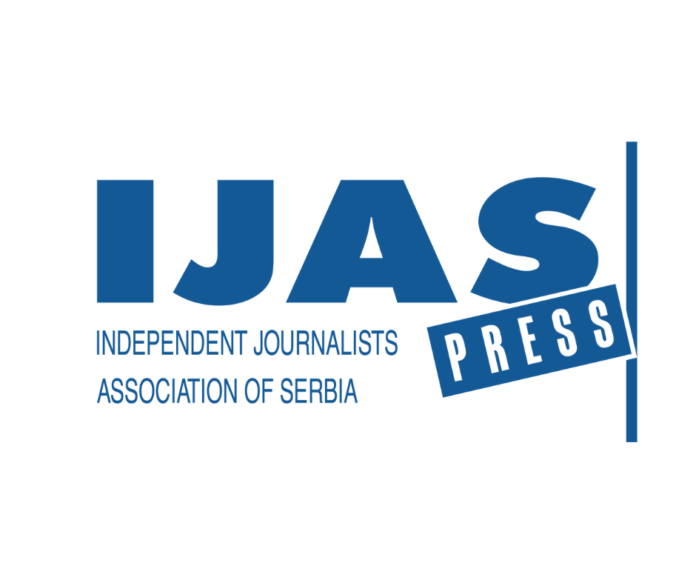Srpski telegraf, Alo, Informer, Vecernje novosti, Kurir, Blic and Politika received contracts worth at least 108 million dinars (more than 850 000 euros) last year through public procurement, according to IJAS research. According to the latest Report on monitoring compliance with the Serbian Journalists’ Code of Ethics in daily newspapers published last year by the Press Council, these media violated the Code a total of 2,579 times. The Press Council’s Complaints Committee decided 22 times last year whether these media violated the Code.
Publishers of printed and online editions of the aforementioned media, according to the data of the Public Procurement Portal, received contracts worth at least 108 million dinars last year, mainly for advertising of state enterprises and institutions.
Vecernje novosti received the most money through public procurement, a little over 21 million dinars (over 175 000 euros).
The total number of articles by title in which Vecernje Novosti violated the Code of Journalists of Serbia is 328, according to the latest monitoring of the Press Council. The Appeals Commission, during the last year, decided twice on the violation of the Code, once for the printed edition and the portal, and both times it was decided that the Code was violated.
Politika received 17.7 million dinars (around 151 000 euros) through public procurement, but, of all observed media, it violated the Code the least, a total of 38 times, according to monitoring, while the Commission did not receive a single complaint regarding the writing of this media.
Alo received 17.5 million dinars (around 149 000 euros), and it had 581 violations of the Code. The Complaints Committee received four complaints about Alo’s texts and each time it was decided that the Code had been violated.
Blic received 13.6 million dinars (around 116 000 euros). The total number of texts by title in which the Code of Journalists of Serbia was violated was 174, while the Commission made a decision that the printed edition violated the Code once, and the online edition 3 times.
SrpskiTelegraf received 13.4 million dinars (over 114 000 euros), and had the most violations, as many as 658. Since SrpskiTelegraf does not recognize the jurisdiction of the Press Council, the Complaints Commission issued four public warnings for violating the Code, twice for the printed edition and twice for the online edition, i.e. website republika.rs.
Kurir had 288 violations, with a downward trend, as seen in the report. The Complaints Commission has twice ruled that Kurir violated the Code. This media, mainly for advertising in printed and online editions, received contracts worth 12.6 million dinars (over 107 000 euros) through public procurement.
According to the number of violations of the code, Informer is in third place, right behind Srpski Telegraf and Alo, with 512 violations. The appeals committee mostly decided on the texts published in the Informer and a public reprimand was issued eight times, four each for the print and online editions. Despite that, Informer was awarded 12.5 million dinars (around 106 000 euros) through public procurement.
The amount of money received by the media through public procurement and the number of violations according to the monitoring of the Press Council
source: Flourish
There is no money for media that violate the Code through tenders, but this does not apply to public procurement
According to the new Law on Public Information and Media, which has been in effect since November 4 last year, projects are evaluated according to the extent to which the activities can contribute to the realization of public interest in the field of public information, but also according to the extent to which the specific media adheres to professional and ethical standards.
This would mean that the authority that allocates the funds must obtain data from the competent bodies (REM for electronic media and the Press Council for printed and online media) that in the year preceding the competition, no measure was imposed due to violation of legal provisions, that is, professional ethical standards.
If the media still violated the law or the Journalists’ Code of Ethics, the severity of the injury and the number of imposed measures are taken into account, as well as the behavior of the media after the imposed measure. These provisions will be defined in detail in the new Rulebook on the co-financing of media content production projects, which is in the process of being drafted by the Ministry of Information and Telecommunications.
However, there is no guarantee that in practice a specific media will be punished by being deprived of funds in media contests. Namely, the old Law also contained a similar provision according to which the commission that decides on the distribution of funds through a competition had to assess to what extent “the participant in the competition provides a greater guarantee of adherence to professional and ethical media standards”.
This meant that the commission had to seek the opinion of the regulatory and self-regulatory body, but in practice their opinion did not influence the decision on the allocation of funds.
When it comes to public procurement, the behavior of the media does not influence the decisions of the authorities that tender them.
When announcing public procurements, the contracting authority selects the bidder based on other, more technical criteria, without going into the essence of what the media deal with: type of media, circulation, i.e. viewership and listening, coverage of the territory, dynamics of exposure, etc.
Although there is no legal obligation to evaluate the decisions of the Press Council, every contracting authority that carries out public procurement procedures should still look at all aspects of the responsible behavior of the bidders to whom it awards contracts and evaluate such behavior through its selection criteria because it disposes of the funds of the citizens of Serbia. Especially if these behaviors are negative in the areas that the media deal with and are the subject of the services that are procured, and it is clear that the decisions of the Press Council speak of hundreds of violations of the code of journalists of Serbia. On the other hand, numerous public procurements are not only related to advertising, but represent other types of services provided by the media, such as writing certain texts whose topics are almost identical to the topics from project co-financing.
Taking into account the above, for the media that violate the Code, there is no fear for those who violate ethics, that they will be deprived of money from the budget.
Institutions that have decided to advertise in the media that violate the Code
In the media that, according to the monitoring of the Press Council, most often violate the code, the following institutions decided to advertise:The Post of Serbia, Radio Television of Serbia, Provincial Secretariat for Regional Development, Interregional Cooperation and Local Self-Government, Municipality of Stara Pazova, Republic Fund for Pension and Disability Insurance, State Lottery of Serbia, Tourist Organization of Serbia, City Administration for Communal Affairs Kragujevac, City Administration for construction land and investments Novi Sad, City of Cacak, City Administration for Property Affairs, Urban Planning, Construction and Legislation Kragujevac, Municipal Administration of Backa Palanka Municipality, Provincial Secretariat for Health, Republic Directorate for Property of the Republic of Serbia, JP EPS, Provincial Secretariat for Education, City Bor City Administration, City of Kikinda, Agency for Licensing Bankruptcy Trustees, City of Niš, Ministry of Economy, Ministry of Culture, JP Srbijašume, Municipal Administration of Vrnjacka Banja Municipality, Administration for Capital Investments of AP Vojvodina, Directorate for Building Land and Construction of Belgrade, Ministry of Construction and Public company funeral services Belgrade.
FakeNews Tragac: Golden Pinocchio for Informer, Silver for Zero Point, and Bronze for Serbian Telegraph
The FakeNews Tragac portal annually awards Gold, Silver and Bronze Pinocchio awards to the media that, according to their records, most often spread false and manipulative news during the previous year.
After six more complex investigations, the FakeNews Tragač team compiled a list of media, and the first on that list is Informer, which earned this media the Golden Pinocchio for the third time. The Zero Point is in second place, and the Srpski telegraf is in third place. During the past year, the FakeNews Tragač editorial office detected misinformation in 83 media outlets, to which should be added a large number of inaccurate content originating from social networks.











